Balraj Sahni
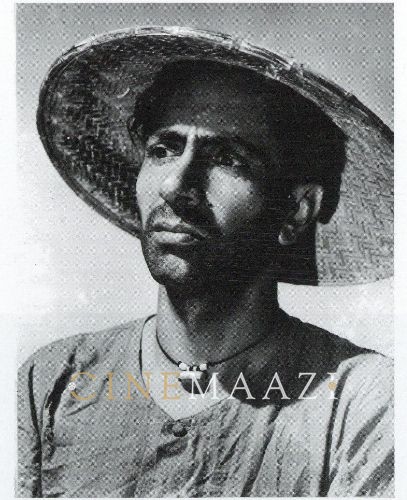
Subscribe to read full article
This section is for paid subscribers only. Our subscription is only $37/- for one full year.
You get unlimited access to all paid section and features on the website with this subscription.
Not ready for a full subscription?
You can access this article for $2 , and have it saved to your account for one year.
- Real Name: Yudhishtir Sahni
- Born: 1 May 1913 (Rawalpindi, Punjab, British India)
- Died: 13 April 1973 (Mumbai, Maharashtra)
- Primary Cinema: Hindi
- Spouse: Damyanti Sahni , Santosh Sahni
- Children: Parikshit Sahni , Shabnam Sahni
Balraj Sahni was born Yudhishtir Sahni on 1 May 1913 in Rawalpindi. His father, Harbans Lal Sahni, was a staunch follower of the Arya Samaj. After he had secured an MA degree in English literature, Sahni’s father forced him into the family business of textiles. From 1935-37, he travelled to the corners of Kashmir and the North West frontier. He also married Damyanti, the daughter of his college professor Jaswant Rai. Much to his father’s regret, he soon parted ways with the family business and started teaching at Shantiniketan.
Up until 1939, Yudhishtir Sahni remained a teacher of English and Hindi at Shantiniketan, while Damyanti completed her B.A. degree at the institution. Following this, he travelled to Wardha in Maharashtra to join the editorial staff of a newspaper published by the Wardha Scheme of Education. Around this time, he also grew closer to Gandhi and other members of the Indian National Congress.
In May 1940, Yudhishtir left for London to work with BBC radio, where he relayed radio plays and interviews in Hindi. He returned to India four years later and met one of his old friends, Chetan Anand. Chetan Anand convinced him to move to Bombay to work in a film he was making, Neecha Nagar (1946). However, once he moved to Bombay, Balraj found himself stranded there with his family.
In 1945, Balraj joined the Indian People’s Theatre Association (IPTA) and worked in a number of plays with the writer K.A. Abbas. He appeared onscreen in minor roles in Phani Majumdar’s Justice/Insaaf (1946) and Door Chalen (1946). In Dharti Ke Lal (1946), Balraj Sahni received an opportunity to play the lead alongside his wife Damyanti. Directed by K.A. Abbas, the film was an attempt to bring to the screen the saga of the 1943 Bengal famine. In April 1947 Damyanti passed away following a brief illness.
Soon after, Balraj Sahni was cast opposite Nalini Jaywant in the film Gunjan (1948). He had not yet tasted success as an actor but carved a niche for himself as a writer when he wrote the screen and dialogue for Guru Dutt’s directorial debut, the Dev Anand-Geeta Bali starrer Baazi (1951). Following the success of Baazi, Chetan Anand asked him to write and direct a film under the Navketan banner. Meanwhile, he was offered the lead role in Hum Log (1951) with the help of his neighbor Zia Sarhady, who was scripting the film. After Hum Log (1951) enjoyed a fair amount of success, Balraj Sahni started receiving offers as an actor. He landed roles in films like Filmistan’s Badnaam (1952), Manmohan Film’s Akash (1953), K.A. Abbas' Rahi (1953), and Asha Biswas’ Bazooband (1954). His role as the struggling peasant in the acclaimed film Do Bigha Zameen (1953) that set him apart as an actor of note who would not hesitate to participate in films that would reflect social realities and make statements of protest, if necessary. To understand the role, which required him to settle comfortably into the skin of a daily wage earner, Balraj Sahni visited farmers at work and went to their homes to study them. He even met a rickshaw puller whose story was similar to that of Shambhu’s in the film and ran barefoot on the burning asphalt of the city’s roads, practicing how to ply the rickshaw.
In the wake of Do Bigha Zameen’s success, Balraj Sahni continued to turn out one stellar performance after another. He was memorable as the faithful domestic servant in Aulad (1954), an English man in Rahi (1953), a noble caretaker in Seema (1955), and a clerk in Garm Coat (1955). He also appeared in noteworthy films like Kath Putli (1957), Pardesi (1957), Bhabhi (1957), Lajwanti (1958), Chhoti Bahen (1959), Satta Bazaar (1959), Heera Moti (1959), Nai Maa (1960), Anuradha (1960), Kabuliwala (1961) and Bhabi Ki Chudiyan (1961). He continued to win hearts with his character roles in Haqeeqat (1964), Waqt (1965), Do Raaste (1969), Ek Phool Do Mali (1969) and Ghar Ghar Ki Kahani(1970).
Balraj Sahni tried his hand at direction with Lal Batti (1957), along with Krishan Chopra. The film starred Mala Sinha and Shashikala. He also starred in the classic Punjabi film Nanak Dukhiya Sub Sansar (1970) and the critically acclaimed Satluj De Kande (1964).
A man of many talents, Balraj also wrote poetry in English. He later switched to writing short stories in Hindi, which have been published as a collection titled Basant Kya Kahega?. He is also the author of two travelogues, Pakistani Safarnama and Mera Russi Safarnama, both of which have been widely translated from the original Punjabi. He continued to remain active as a stage actor, acting in plays like Gogol’s Inspector General (directed by himself, 1952), Kabuliwala (Baij Sharma), Aakhri Shama (written by Kaifi Azmi) and Sookhsma Roop, which he wrote himself.
After he lost his wife in 1947, Balraj was shaken by the death of his daughter Shabnam as well. Her failed marriage, a suicide attempt, her mental illness, and eventual death took a toll on him. She died on 5 March 1972 at the age of 26, tragically the same age at which Damyanti had passed away.
Not long after her death, Balraj Sahni was offered a role in Garm Hawa (1973). The film was to be made by IPTA, based on a short story by Ismat Chughtai and adapted for the screen by Kaifi Azmi and Shama Zaidi. The story explored the consequences of the Partition in 1947 on the lives of the people who lost their homes and were forced to flee their homeland. On 13 April 1973, after he finished his final dubbing for the film at the age of 59, Balraj Sahni succumbed to a cardiac arrest. Both the film and his performance were widely praised. His son, Parikshit Sahni, remains an actor working in the industry to date and has worked with his father in films like Pavitra Papi (1970) and Hindustan Ki Kasam (1973).
-
Filmography (99)
SortRole
-
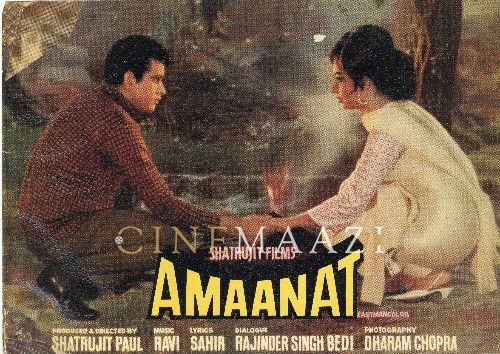
Amaanat 1977
-
Pyar Ka Rishtaa 1973
-
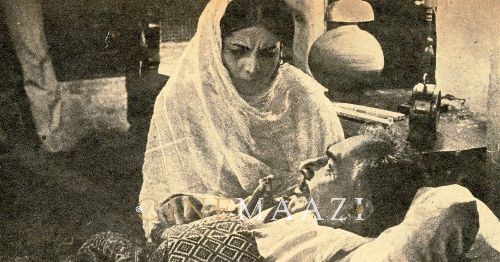
Garm Hawa 1973
-
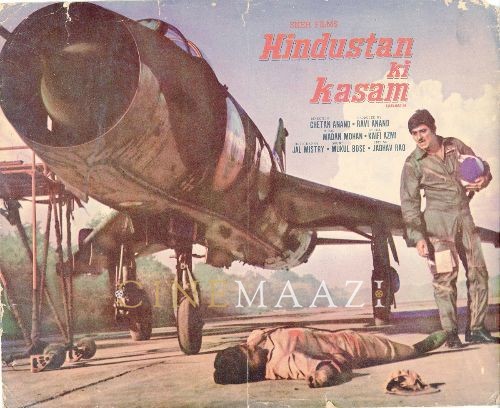
Hindustan Ki Kasam 1973
-
Chimni Ka Dhua 1973
-
Daaman Aur Aag 1973
-
Hanste Zakhm 1973
-
Jungle Mein Mangal 1972
-
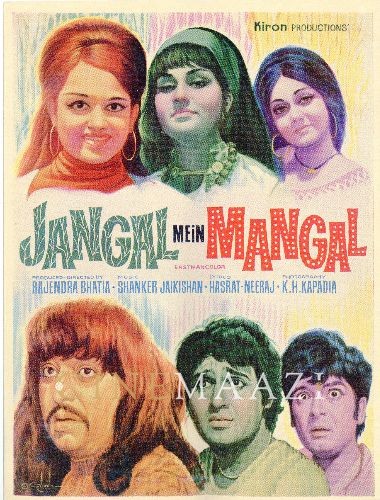
Jangal Mein Mangal 1972
-

Jawani Diwani 1972
-








.jpg)



